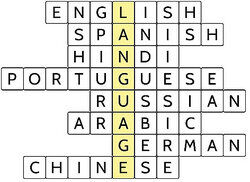In the old Prussian provinces alone there were fifty-three different customs frontiers, and German manufactures could not develop until the growth of the Zollverein brought with it commercial consolidation, internal freedom and greater homogeneity of economic conditions.
About the close of this period we have some valuable writers on Polish history, which now began to be studied critically, such as Hartknoch in his Altand Neues Preussen (1684), a work in which are preserved interesting specimens of the old Prussian language, and Lengnich (1689-1774), author of the valuable Jus publicum regni Poloniae, which appeared in 1742.
His reactionary conservative temper was in complete harmony with the views of Bismarck and the emperor William, and with their powerful support he attempted, in defiance of modern democratic principles and even of the spirit of the constitution, to re-establish the old Prussian system of rigid discipline from above.
The system which obtains in all the old Prussian provinces (with the exception of Rugen and Vorpommern or Hither Pomerania) and in Westphalia is that of Stein, modified by subsequent laws notably those of 1853 and 1856which gave the state a greater influence, while extending the powers of the Magistrat.
Voluntary enlistments of men who desired to become non-commissioned officers were most frequent in the provinces of the old Prussian monarchy, but in Berlin itself and in Westphalia the enlistments fell far short of the number of non-commissioned officers required for the territorial regiments.





